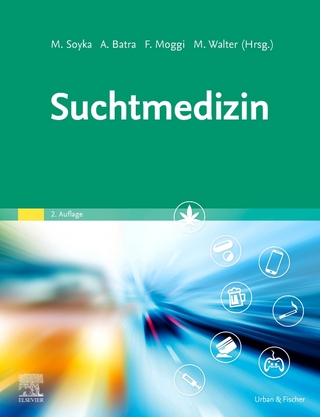
Addiction Treatment
Johns Hopkins University Press (Verlag)
978-0-8018-8669-0 (ISBN)
Part II explores the complications raised by the diversity of those with addictions, ranging from pregnant women who use intravenous drugs, young men who abuse methamphetamines, youths who smoke cigarettes, and adults who abuse alcohol to those who smoke marijuana or abuse prescription drugs. Part III provides a detailed analysis of health care, social, and policy issues that challenge our views about addiction and its treatment. It addresses controversial topics such as whether addiction should be considered a disease or a behavior, whether addiction should be handled as a criminal offense or treated as a public health problem, and whether stigmatizing addiction is helpful or not. Throughout the book, compelling examples of addiction art explore the human side of addiction through the lens of visual artists' stunning insights into addiction and recovery. Addiction Treatment provides a solid foundation for understanding addiction as a treatable illness and for establishing a framework for effective treatment in the twenty-first century.
Jack E. Henningfield is an adjunct professor of behavioral biology at the Johns Hopkins School of Medicine and vice president for research and health policy at Pinney Associates, a consulting firm in Bethesda, Maryland, that specializes in science policy and regulatory issues concerning public health, medication development, and treatment of tobacco addiction. Patricia B. Santora is an assistant professor of psychiatry at the Johns Hopkins School of Medicine. Warren K. Bickel is Wilbur D. Mills Chair of Alcoholism and Drug Abuse Prevention and is the director of the Center for Substance Abuse Treatment at the University of Arkansas for Medical Sciences.
List of Contributors
Preface
Introduction: Drug Addiction in America: Challenges and Opportunities
Part I. Treatment Models and Emerging Science
1. Is Addiction a Problem of Self-Control?
2. The P.R.I.M.E. Theory of Motivation as a Possible Foundation for the Treatment of Addiction
3. A Future for the Prevention and Treatment of Drug Abuse: Applications of Computer-Based Interactive Technology
4. Office-Based Treatment of Addiction and the Promise of Technology
5. High-Impact Paradigms for the Treatment of Addiction
6. New Approaches to the Treatment of Stimulant and Other Substance Abuse: A Behavorial Perspective
7. Using Diminished Autonomy over Tobacco Use to Identify Smokers in Need of Assistance with Cessation
8. New Directions for Tobacco Cessation Therapies
9. Could Nutritional Factors Influence the Development and Maintenance of Addiction to Nicotine?
Part II. Special Populations
10. Addiction and Pregnancy
11. Perspectives on the Risk-Benefit Ratio of Pharmacological Treatment for Adolescent Chemical Addiction
12. The Inhibitory Effect of Insurance Statutes on the Provision of Alcohol Screening and Intervention Services in Trauma Center
13. Addiction and Multiple Morbidities in HIV-Positive Patients
14. Providing Access to Treatment for Opiod Addiction in Jails and Prisons in the United States
15. Addiction Art and Science: Two Sides of Humanity
16. Addiction, Recovery, and Art: My Story
Part III: Health Care, Social, and Policy Issues
17. Advancing the Science Base for the Treatment of Addiction
18. "Going UPstream": Thoughts for Substance Abuse Professionals
19. In Praise of Stigma
20. Addiction as Disease: Policy, Epidemiology, and Treatment Consequences of a Bad Idea
21. Parsing the Future of Behavioral Intervention for Drug Abuse: Clinical Science and Policy
22. Protecting Patient Confidentiality in Alcohol and Drug Treatments
23. Deterring Sales and Marketing of Alcohol to Youth: The Role of Litigation
24. How Social Policy Can Foster Advances in the Treatment of Addiction: Tobacco Smoke Pollution and the Hospitality Industry as an Example
25. The Role of the Food and Drug Administration in Accelerating the Development and Release of New Medications for the Addictions
26. Smoking Status as the New Vital Sign: Progress and Challenges
Epilogue
Index
| Erscheint lt. Verlag | 28.1.2008 |
|---|---|
| Zusatzinfo | 11 Illustrations, color; 5 Illustrations, black and white; 5 Illustrations, black and white |
| Verlagsort | Baltimore, MD |
| Sprache | englisch |
| Maße | 152 x 229 mm |
| Gewicht | 476 g |
| Themenwelt | Medizin / Pharmazie ► Medizinische Fachgebiete ► Suchtkrankheiten |
| Sozialwissenschaften ► Soziologie | |
| ISBN-10 | 0-8018-8669-4 / 0801886694 |
| ISBN-13 | 978-0-8018-8669-0 / 9780801886690 |
| Zustand | Neuware |
| Haben Sie eine Frage zum Produkt? |
aus dem Bereich


